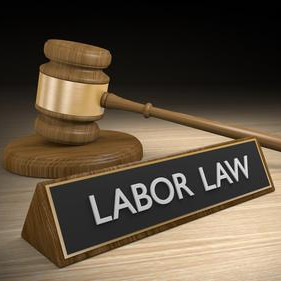“Economic Reality” Under Wage Payment/Collection Act

By former Associate Ethan Don
In Campusano v. Lusitano Construction, the Court of Special Appeals of Maryland held for the first time that the economic reality test governs the definition of “employer” under the Wage Payment and Collection Act (WPCA). The test had previously been applied under the Maryland Wage and Hour Law (MWHL) and the Fair Labor Standards Act (FLSA). Here, it was extended so that the Court could determine whether a supervisor or manager could be personally liable under the WPCA in the same manner that a supervisor or manager could be personally liable under the FLSA or MWHL.
Campusano resulted from the failure of a construction company to pay wages to some of its laborers and the laborers’ suit against the company, Lusitano Construction (Lusitano), its sole owner Geoffrey de Oliveira, and his father, Francisco de Oliveira. The trial court awarded the laborers treble damages of $57,400 against Lusitano and Geoffrey but did not address either the claims against the owner’s father or those for attorneys’ fees and costs. On appeal, the only questions were whether Francisco was an “employer” under the WPCA and if the trial court erred by not awarding attorneys’ fees and costs.
The Court of Special Appeals examined the history of the economic reality test’s application under the MWHL and FLSA, and concluded the test was also applicable to the WPCA. It noted that the appropriate variant of the test for the WPCA applied four factors: whether the alleged employer (1) had the power to hire and fire; (2) supervised and controlled work schedules or conditions of employment; (3) determined the rate and method of payment; and (4) maintained employment records.
Reviewing the facts of the case in light of these factors, the Court concluded that Francisco was not an employer. The Court found that his supervision and control of the laborers’ work schedules and conditions of employment, and the maintenance of work logs, was insufficient to make him personally liable for their wages. The Court emphasized that the father had no ownership, control, or investment in Lusitano, that he had no power to hire or fire the laborers, did not control the method or rate of pay, and that there was nothing in the record to indicate that Francisco personally guaranteed payment.
As important as the Court’s application of the economic reality test is, its limitation of this test is equally significant. First, the Court noted that “[t]he legislative intent to incentivize payment by responsible parties would not be served by holding that a supervisor such as Francisco was an ‘employer’ under either the FLSA or the [WPCL].” Second, it stated that to “hold otherwise . . . would set the precedent that any manager who has some direction in hiring, wages, and other conditions of employment is personally liable for wages that the manager’s own employer is unable or unwilling to pay.” Finally, the Court declared that “managers with no equity interest in the fruits of employee labor should not have to act as insurers of last resort, either to their employers or to the employees that they supervise.”
Individuals still must be cautious. Generally, an owner, officer, or high-level manager may be held personally liable as a joint employer for any back pay, liquidated damages, attorneys’ fees, penalties, or any other costs associated with a violation if the four factor economic reality test is met (i.e., if the owner, officer, or manager has operational control over the employee, such as the ability to hire and fire and set wages and working conditions).
The Court also recognized the trial court’s obligation to consider the laborers’ request for attorneys’ fees and costs and remanded the matter back to the trial court only for consideration of those fees and costs.
